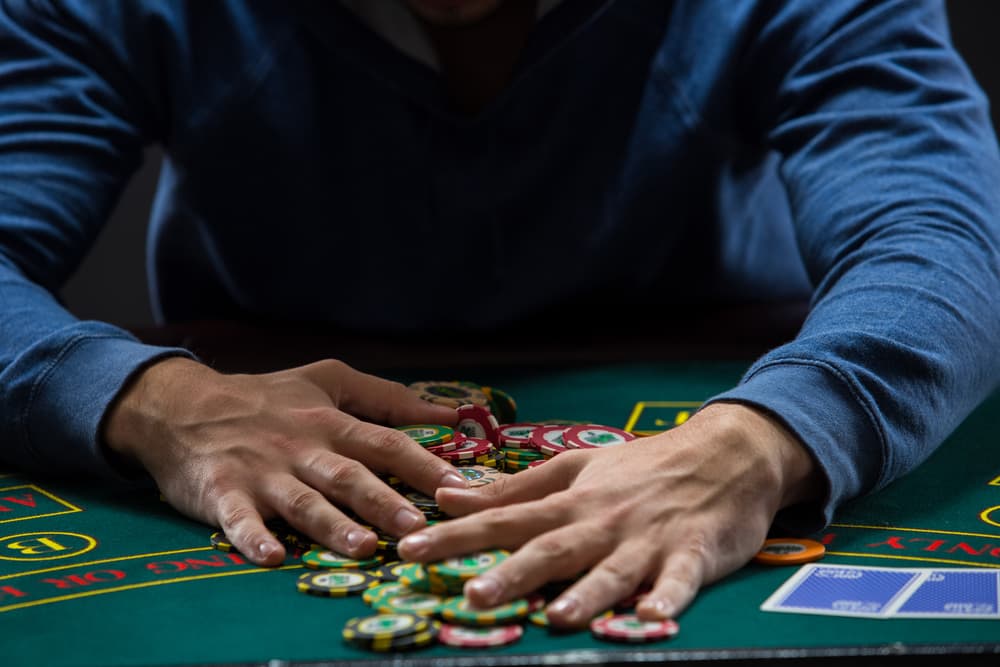The modern poker player has to be accustomed to playing in lots of different scenarios. The old formula of “tight is right” doesn’t work these days. With smaller bet sizing, wider opening ranges and deeper stacks comes the necessity of playing more hands. This is especially the case when you’re in the big blind (BB) and facing a raise from the cut-off or button.
For a lot of you, I know playing from the big blind against late position (LP) is a major challenge. It’s unclear what you should do when forced to play out of position. Players know they must defend wide but that’s all they know and seem to falter post-flop. In this article, I plan to offer suggestions that will help you navigate BB vs LP.
Why BB vs LP is Hard
For those of you confused why BB vs LP is a challenging scenario to play out, I will briefly outline why it is the case. The issue with playing BB vs LP is the fact you are out of position all hand and don’t have the pre-flop lead i.e., you weren’t the aggressor before the flop and are acting first on every round of betting. These elements make winning the pot later more difficult.
Big Blind Against Late Position in Cash Games
Most cash games are played with 50 big blinds minimum. Therefore, it’s not as simple as 3-bet jamming like a shorter stack can do late in a tournament. Instead, you have to make the best of it by identifying hands that will be profitable against certain players.
The majority of cash games are played without antes. This is a big difference to tournaments where antes are involved (even from early stages in online games). The absence of antes changes things a bit because the BB is being laid a worse price. This means you should be playing a tighter range than you may in a tournament. This might seem counter-intuitive as stacks are deeper but the value of deeper stacks lies with implied odds. So, you still want to play hands that can bust your opponent for 100 BBs, but it means discarding the hands you may defend in a tournament.
Another thing to remember is that most cash game opening sizes are larger than tournaments. It’s pretty common for cash game players to open 2.5x or 3x the blinds. In contrast, tournament players will frequently open the minimum or 2.1x due to shorter stacks.

Big Blind Against Late Position in Tournaments
Unlike cash games, tournaments are typically shorter stacks. With a greater emphasis on survival than post-flop technical poker, stealing the blinds is imperative. Most tournament players recognize this and see opening from late position as one of the best opportunities to pick up chips with little risk. However, as a thinking player, you should recognize this and be prepared to make adjustments. Below are some defence mechanisms that should help you win more pots in the BB vs LP battles.
3 Bet
The most obvious way to increase your success in BB vs LP battles is to open up your 3-betting range. This is something TAG players are reluctant to do as it increases variance, however, if executed and timed well, it has great success at most stakes.
The key to 3-betting well is to ensure you size it appropriately and have targeted a player who has a high pre-flop steal percentage. Another key ingredient is stack sizes. If your opponent has under 20 big blinds, be prepared to call any shove or make your 3-bet a jam.
A high pre-flop steal percentage is anything over 70% when the player is in late position. We can reasonably assume they will be opening vast majority of hands and only defending a small percentage when facing a 3-bet. Therefore, 3-betting a wide range yourself will yield a good degree of success when you play Texas Hold’em online. I recommend 3-betting hands with decent blockers containing an ace or king. If you hold an ace or king yourself, there is one less in the deck for them, reducing the changes they have aces or kings or a big ace or king. Therefore, if stack sizes are greater than 35 BBs, you can 3-bet hands like A-2 to A-9 and K-2 to K-9 and still fold if the wake up with a hand.
Some players 3-bet liberally from the BB but fail to size their bet properly. They make it just over the minimum or 2.5x the open. This is simply not enough as you’re giving opponents too good a price, particularly in position. Therefore, I suggest making your 3bet at least 3x their open.
For instance, if the button opens to 2.1, you should be 3-betting to at least 6.2x. You can also consider 3-betting hands like gapped suited connectors. These hands play well if called and you don’t mind folding if jammed on pre-flop as you are unlikely to have great implied odds when facing a late position steal anyway.
Check-Raise Dry Flop
Whilst 3 betting is a great way to win more pots against a late position open, it can be quite predictable and not something you want to over-use. Also, if your opponent has shown a tendency to 4-bet, it’s unlikely to be the best way to exploit them. So, there are times when you will want to flat-call instead and play post-flop.
Against aggressive opponents, check-raising is an effective defence mechanism, especially on dry flops. The reason is simple: they are unlikely to hold anything worthy of continuing.
Most players will c-bet when checked to heads up, especially on dry flop textures. Armed with this information, we can check raise these flops with nothing and have a great deal of success. Naturally, the opposite is true with our strong hands. We should be more willing to check/call down or hope our opponent makes something by the river where hopefully we can over-bet for value.

Donk Lead Wet Flop
My last suggestion for winning BB vs LP battles is to consider donk leading on specifically co-ordinated boards. Most players recognize that wet boards containing potential flushes or straights are bad to c-bet on. They’ll even check back reasonable holdings for pot control too. Therefore, they are decent boards for us to attack. After all, our opponent is likely to have a super wide range of hands, many of which will miss.
If we suspect they will not c-bet often and we don’t want to invest much by check-raise bluffing on a wet board, we can donk lead air in the hope our opponent will just fold. The beauty in this bet is that our opponent is very unlikely to re-raise us unless they have the nuts or near nuts due to the co-ordinated board. These donk bets work well as bluffs. With our stronger holdings we should be more inclined to bluff catch later in the hand or value bet later streets.




